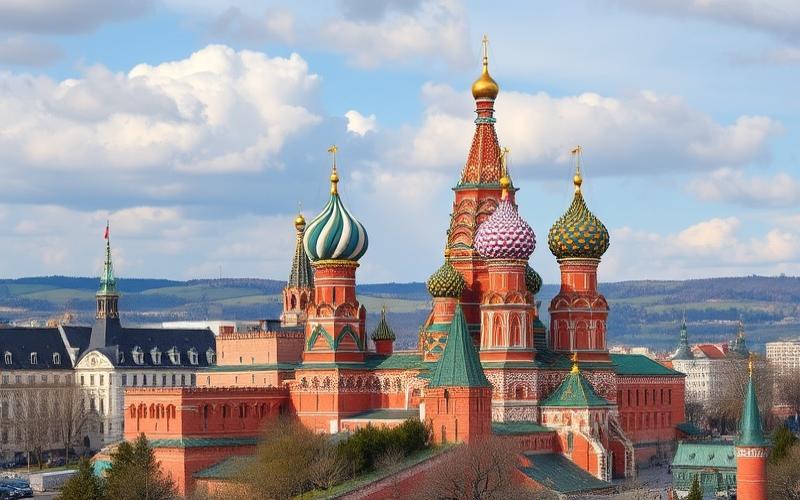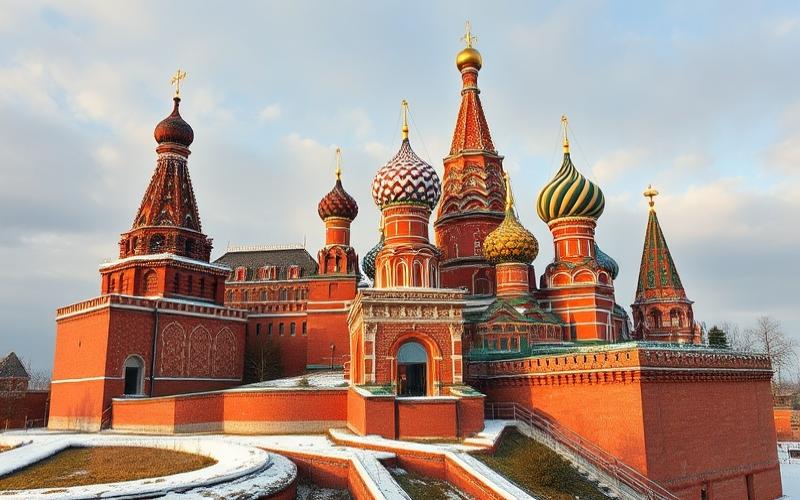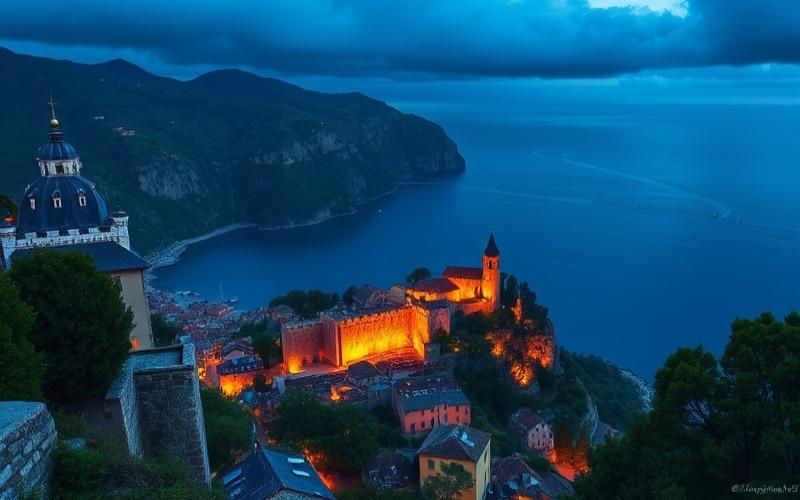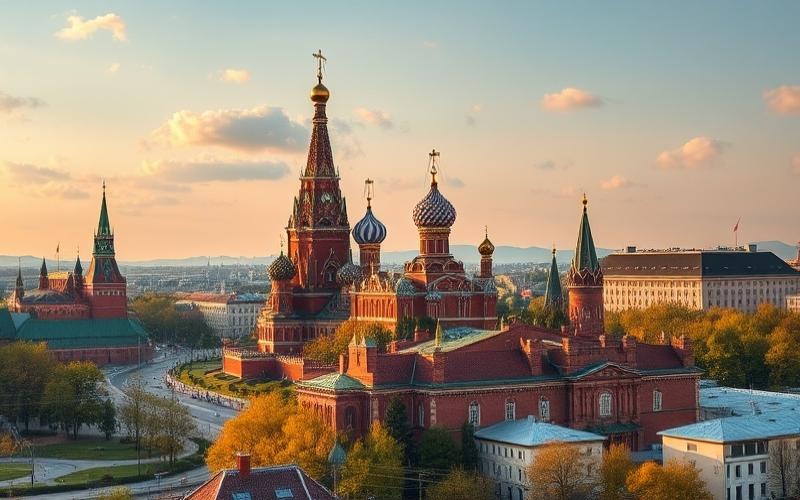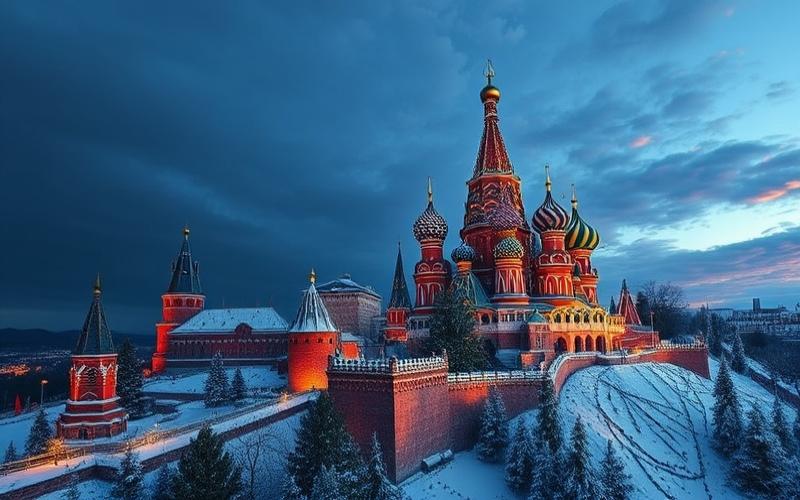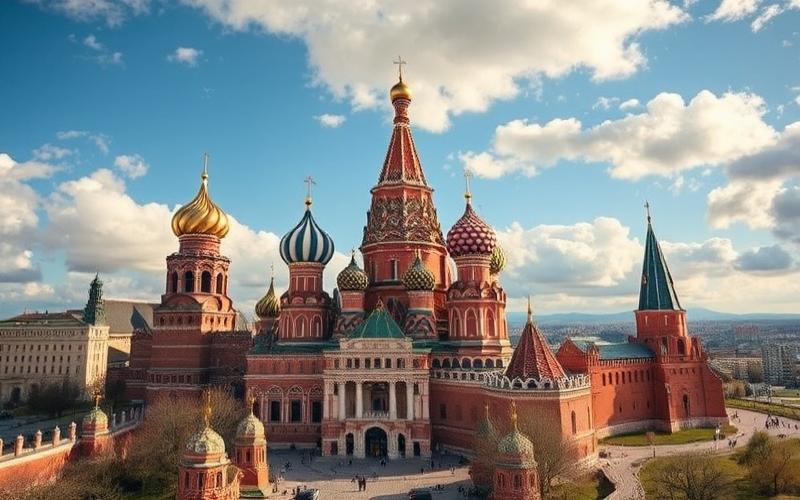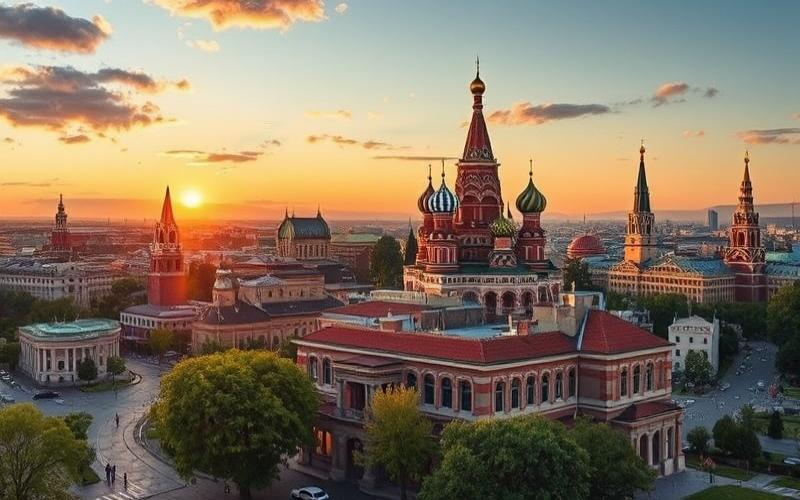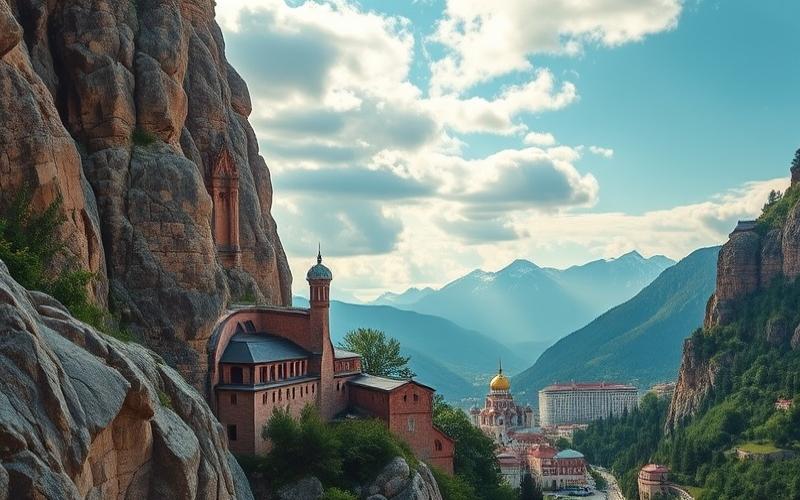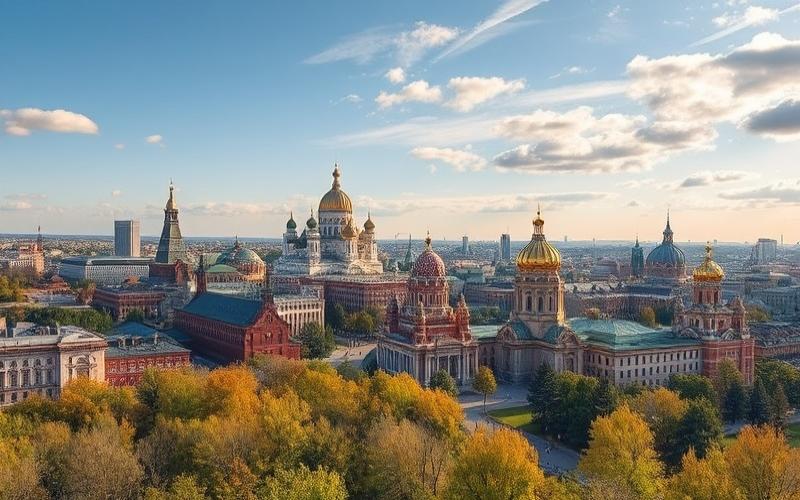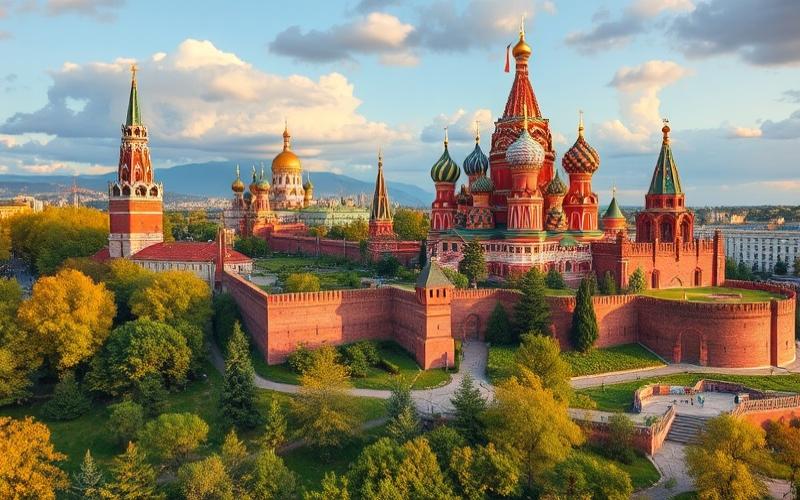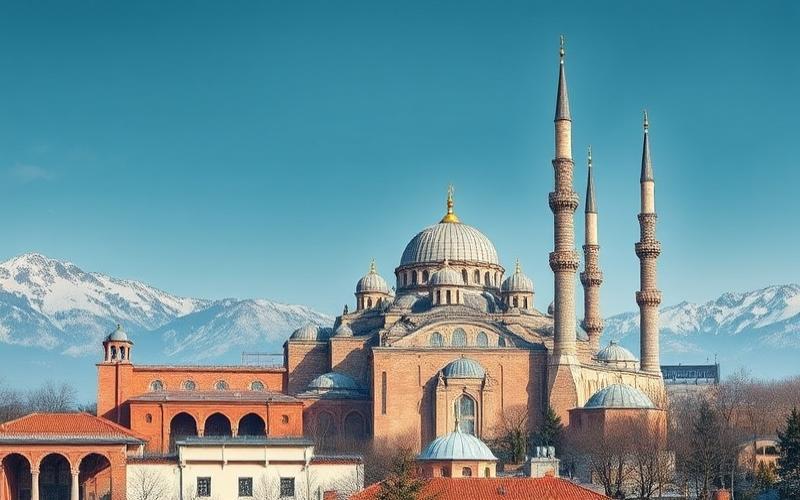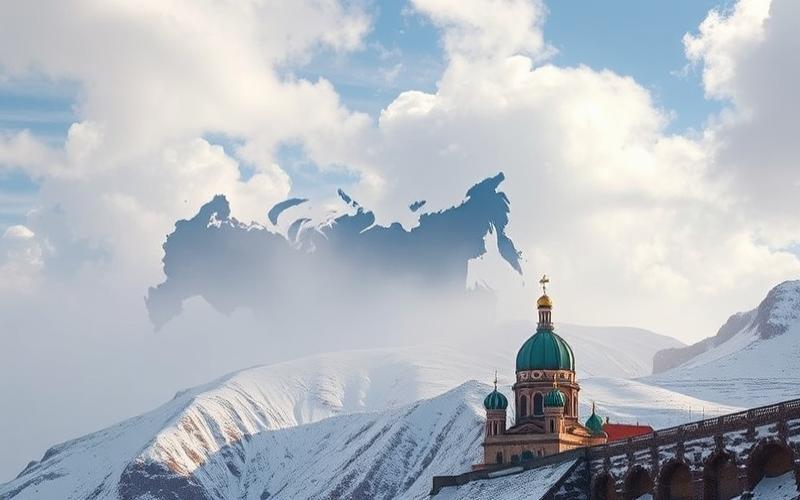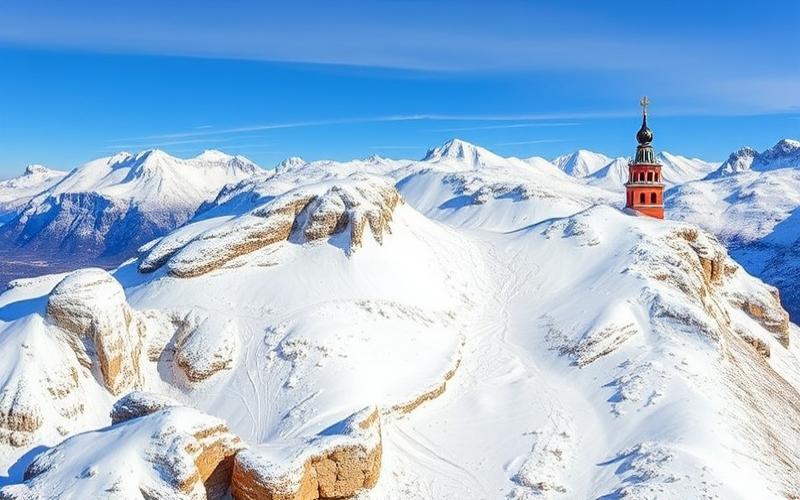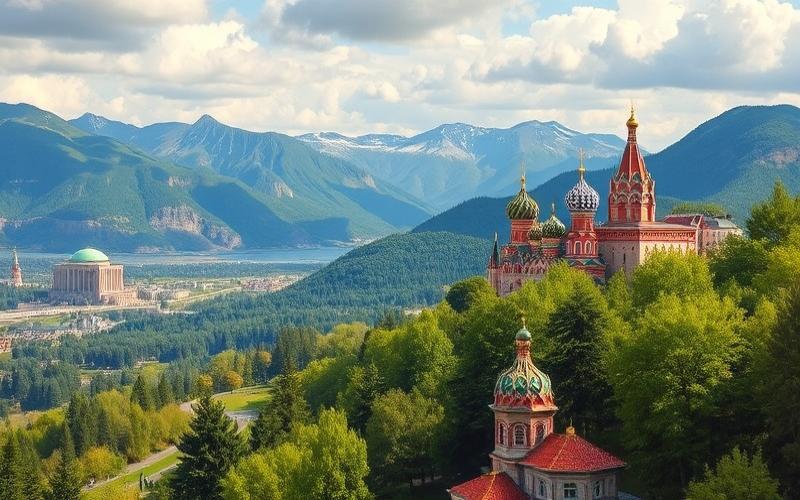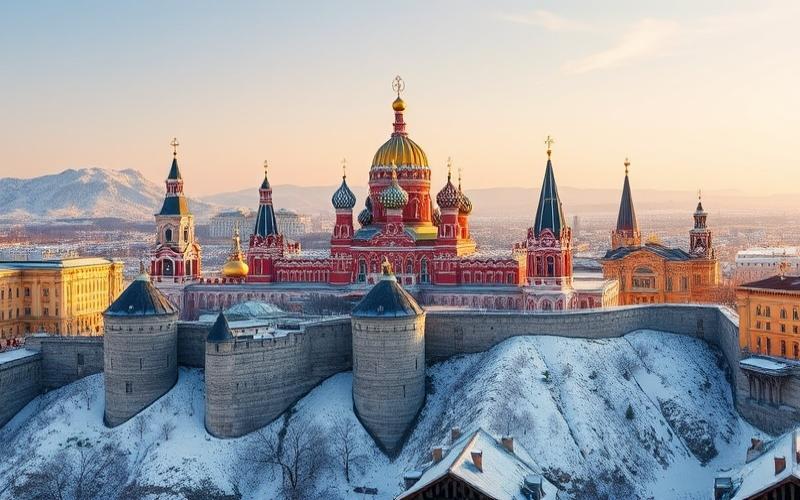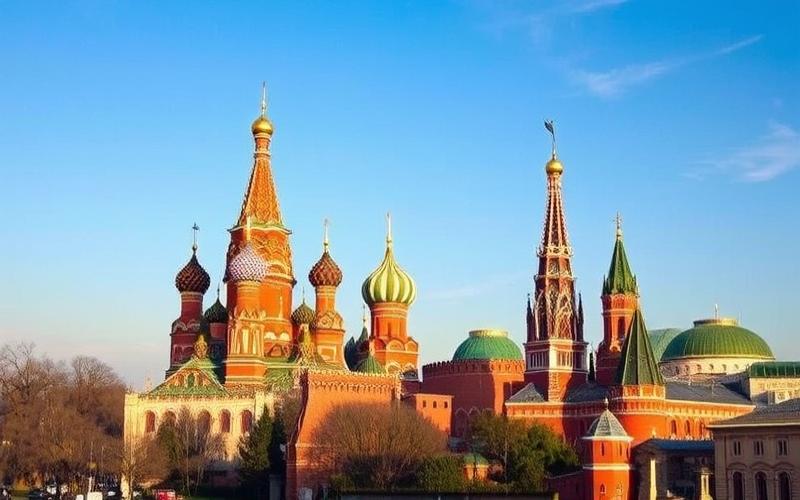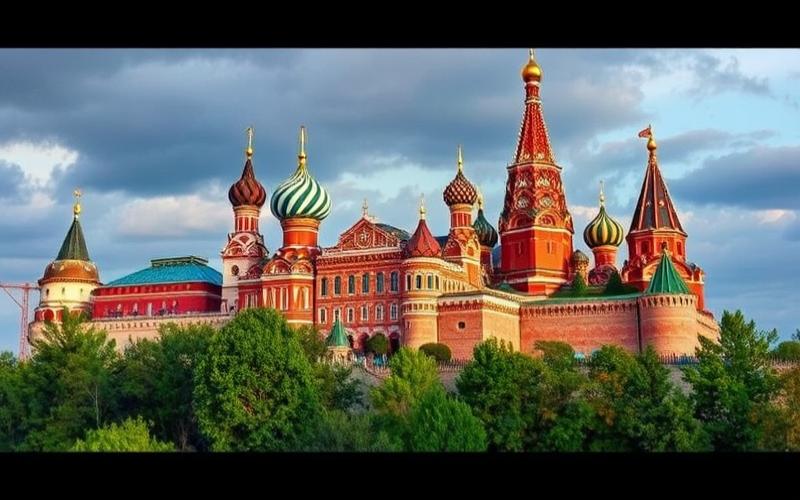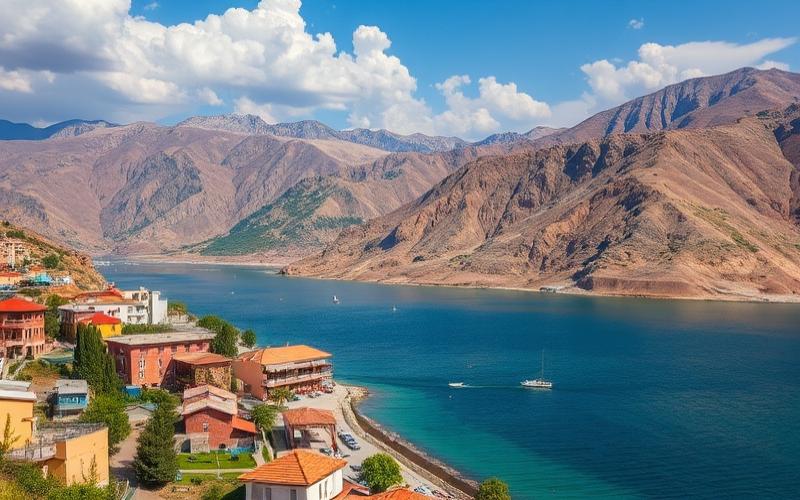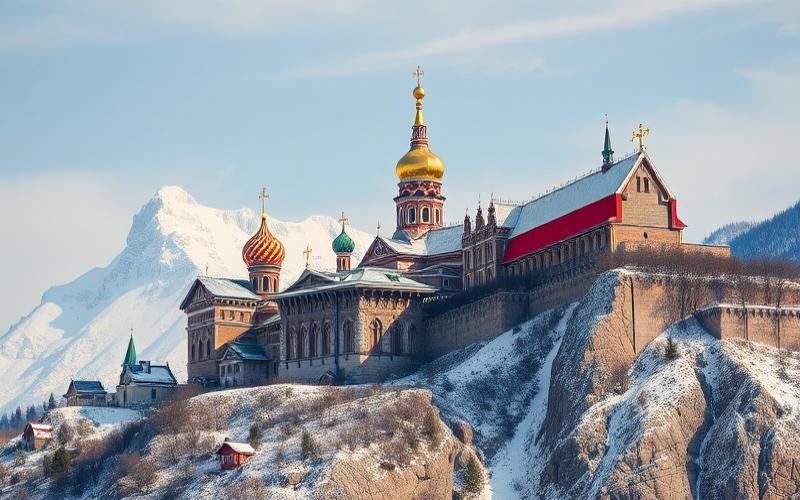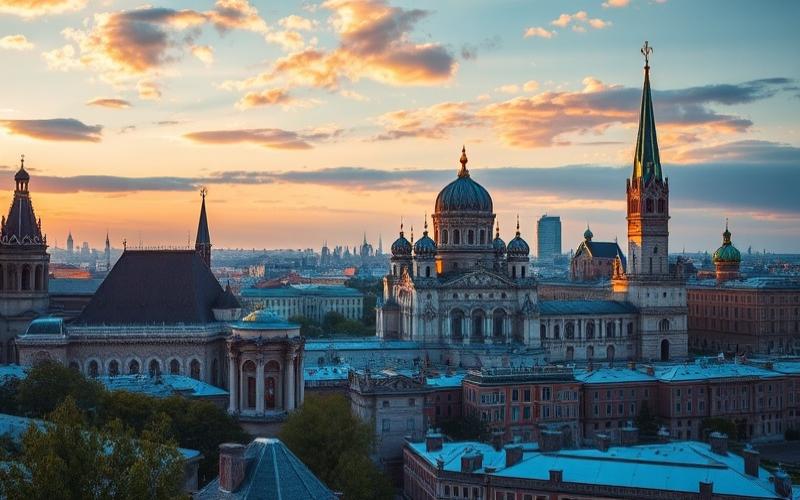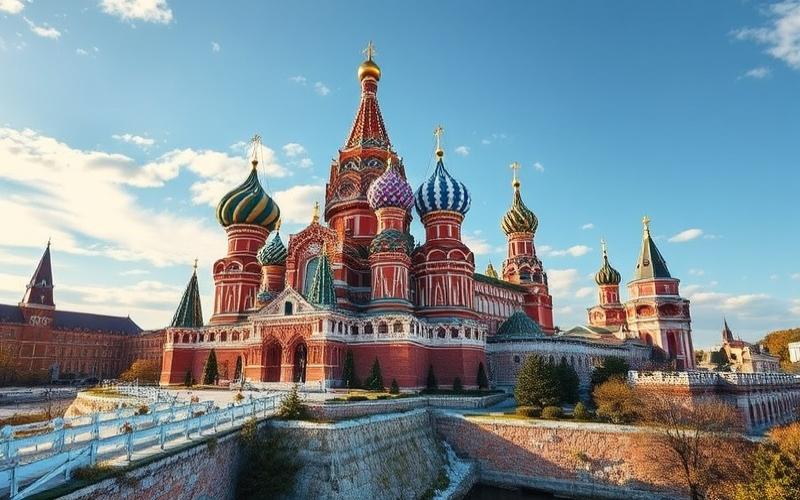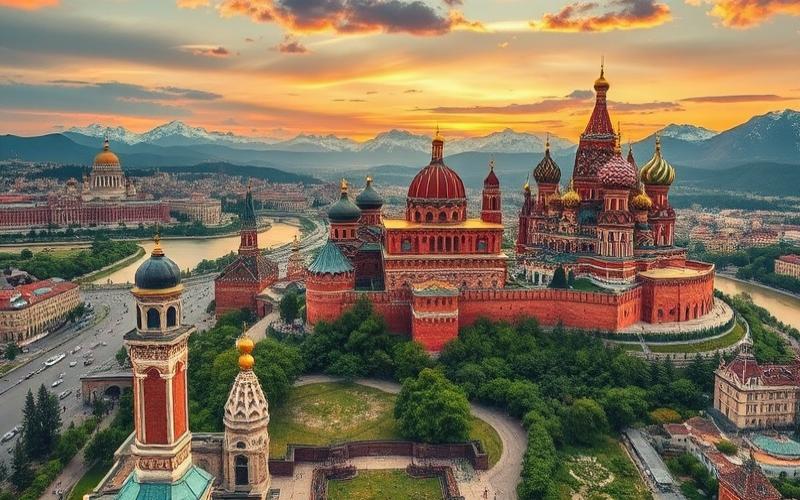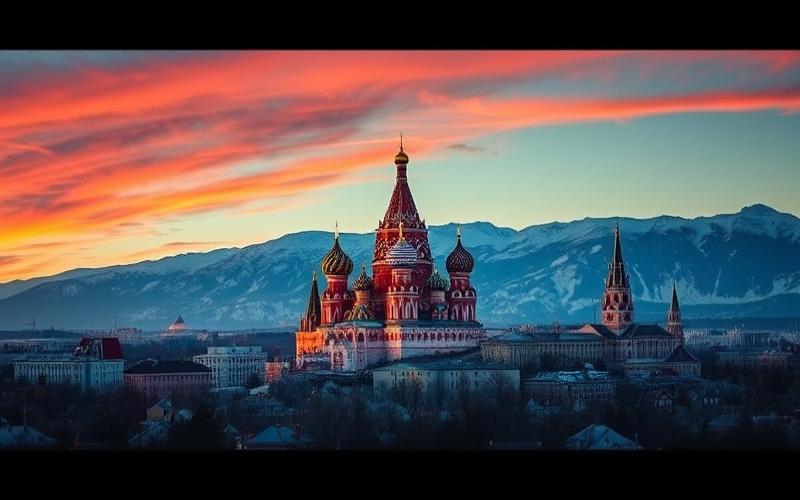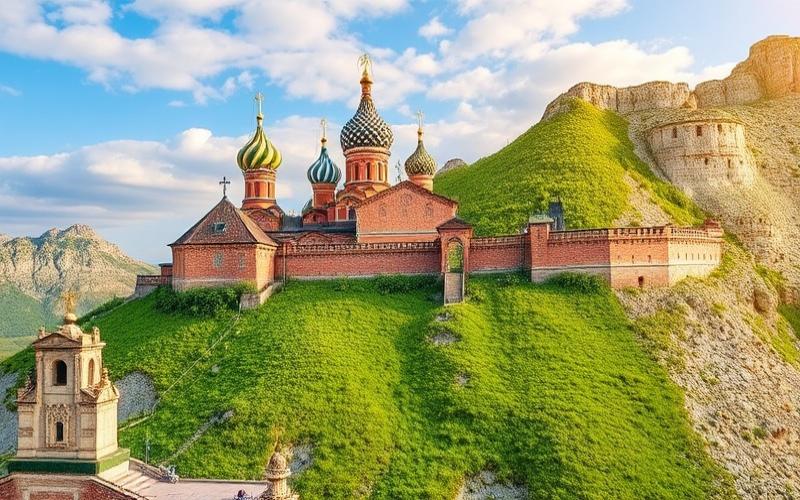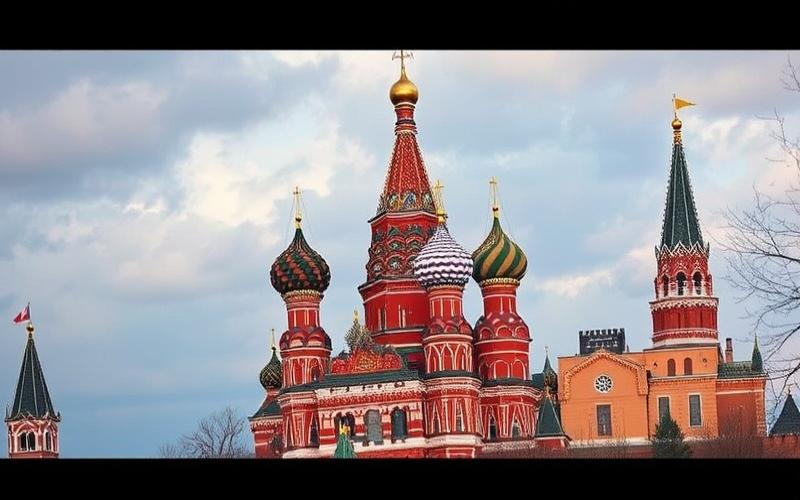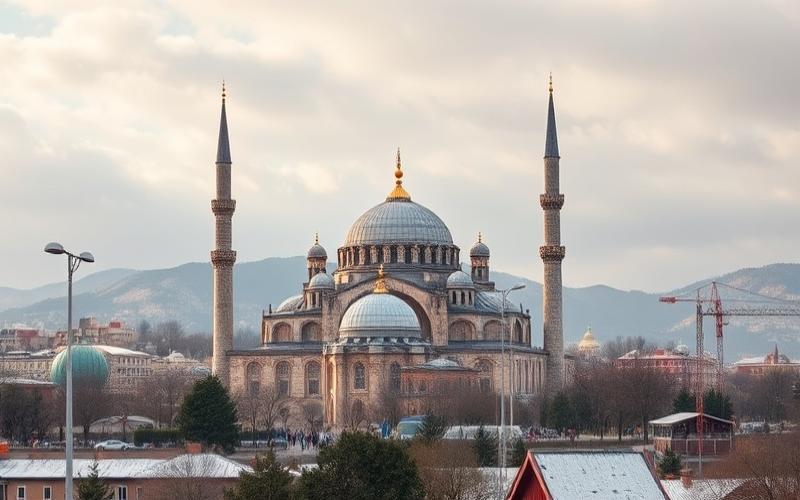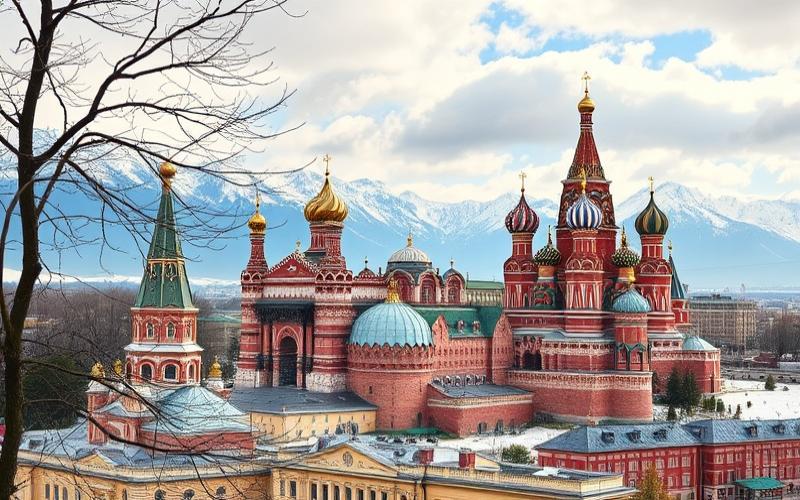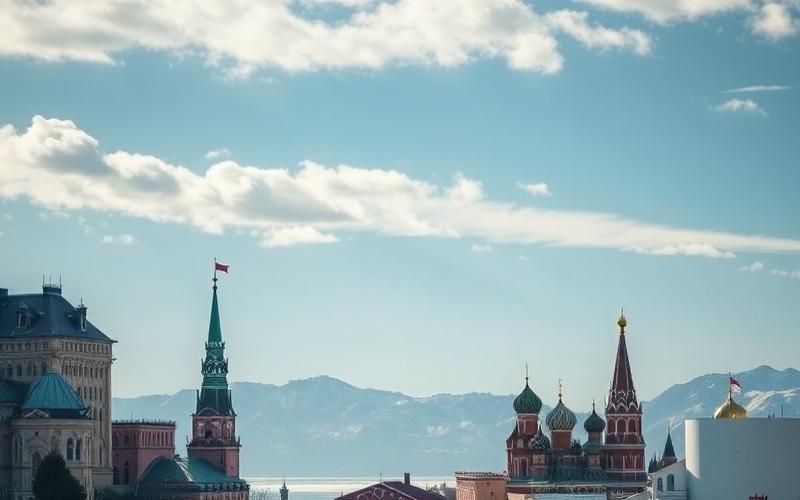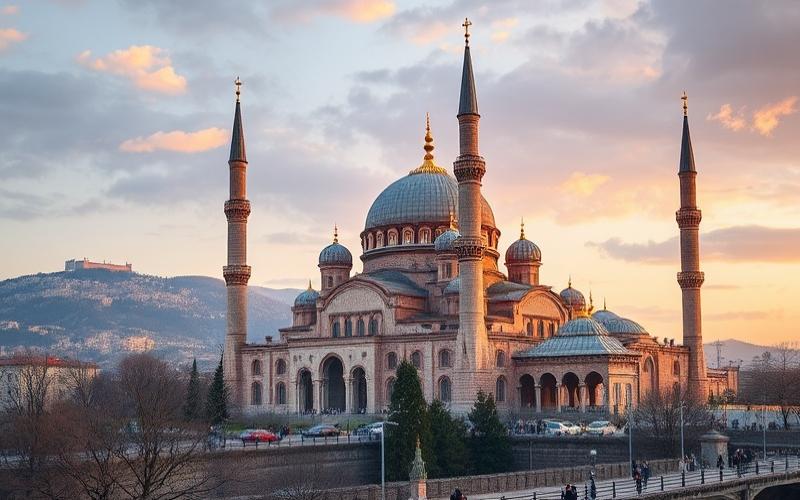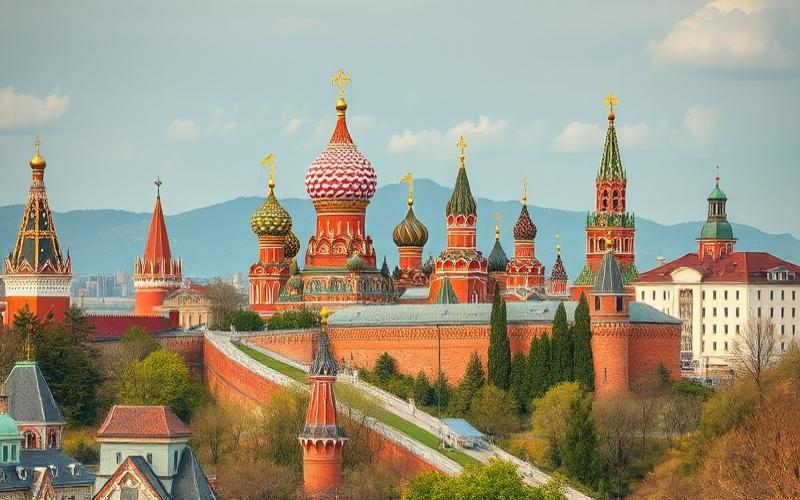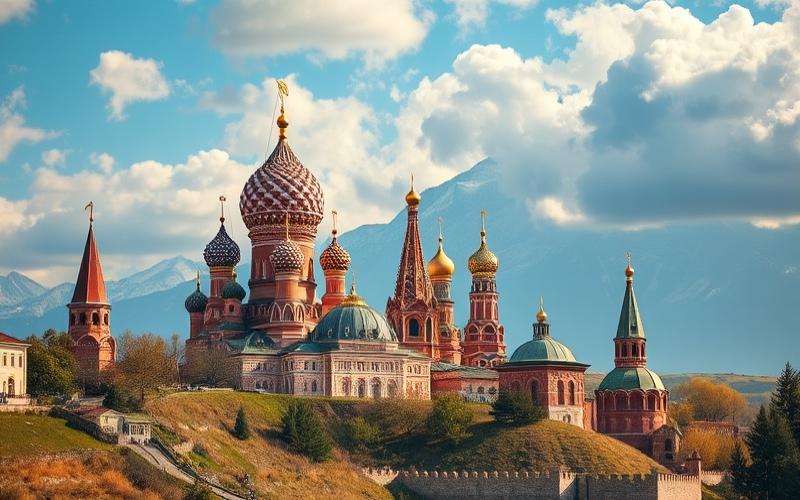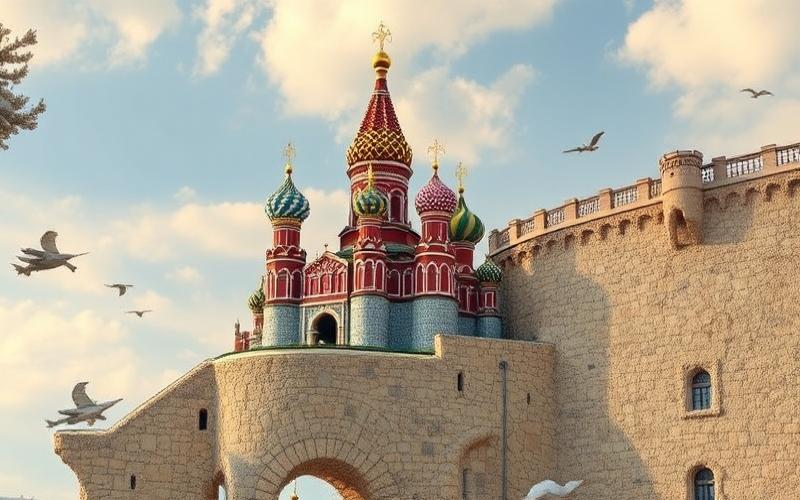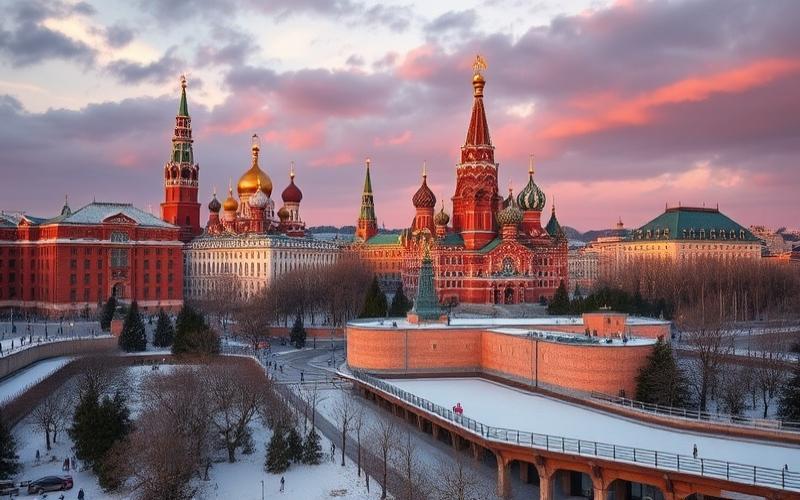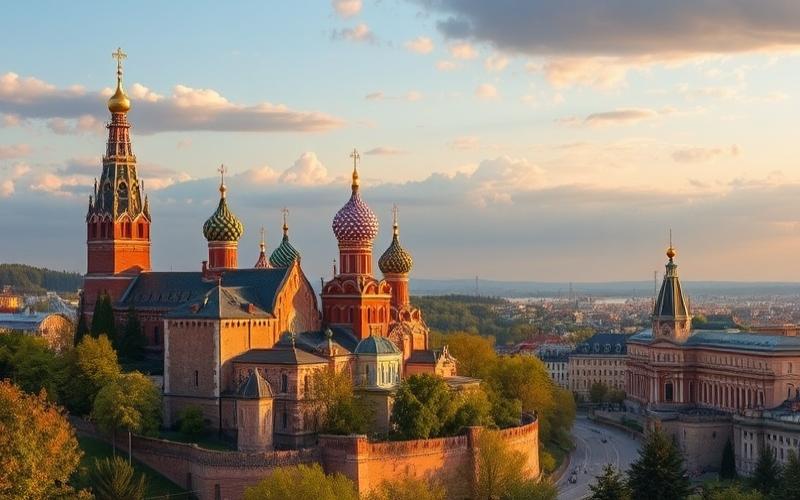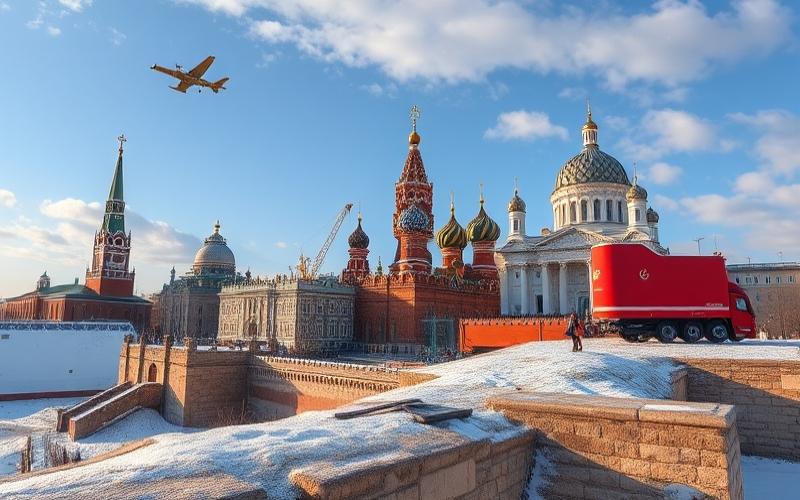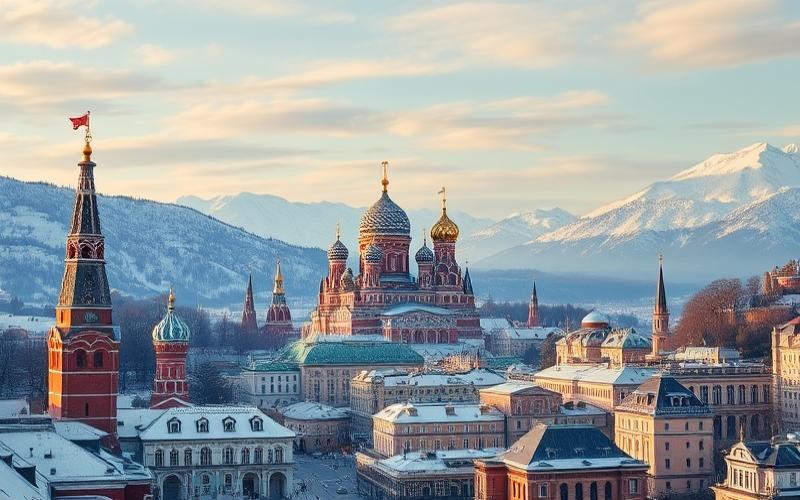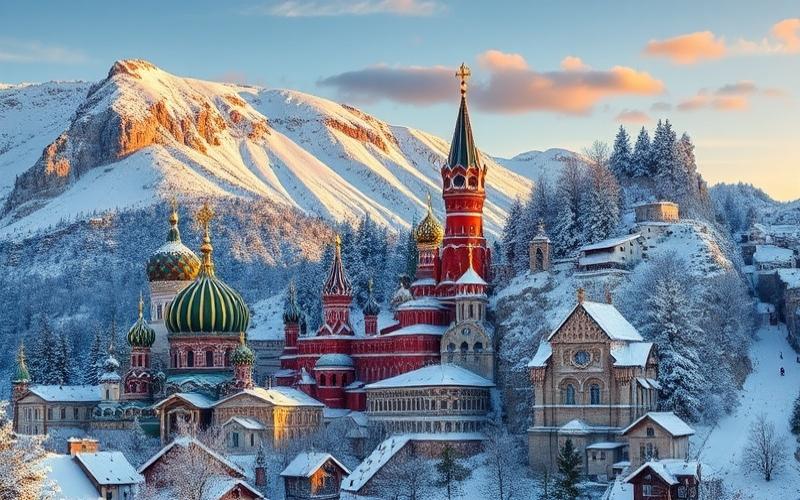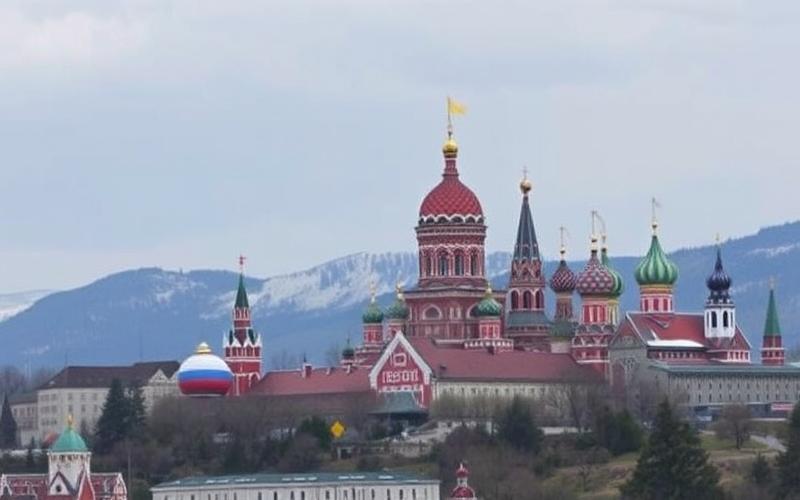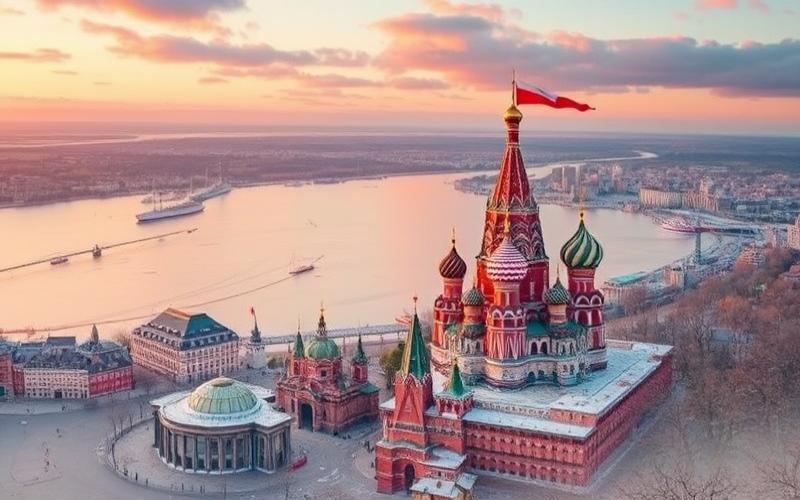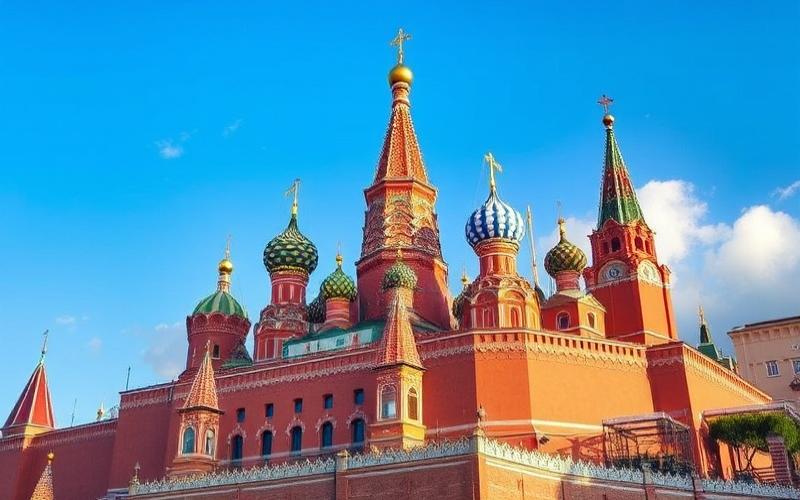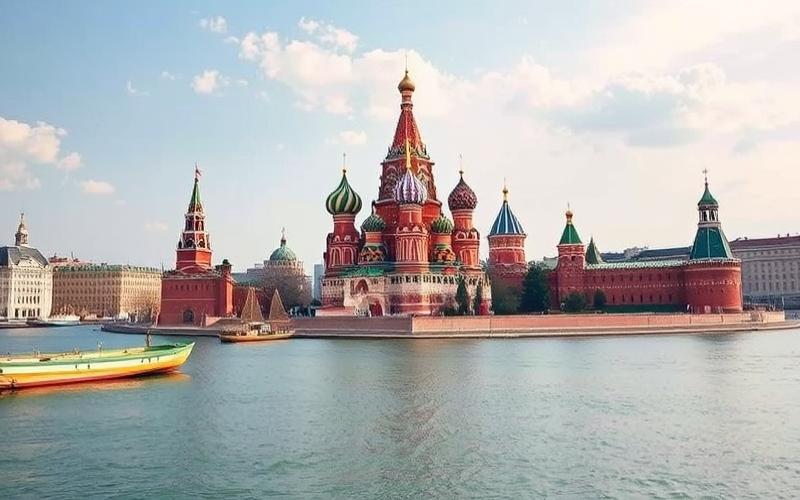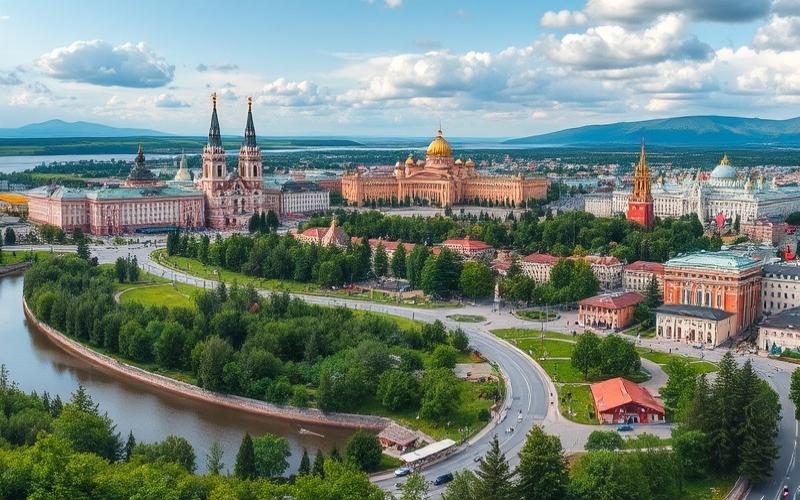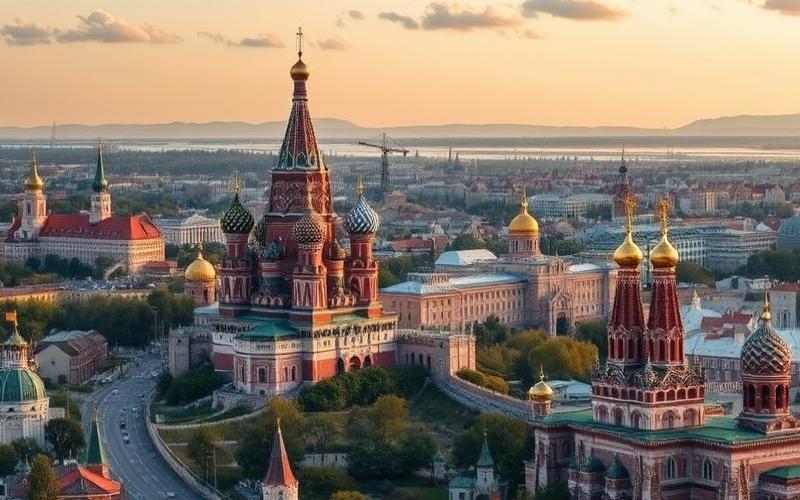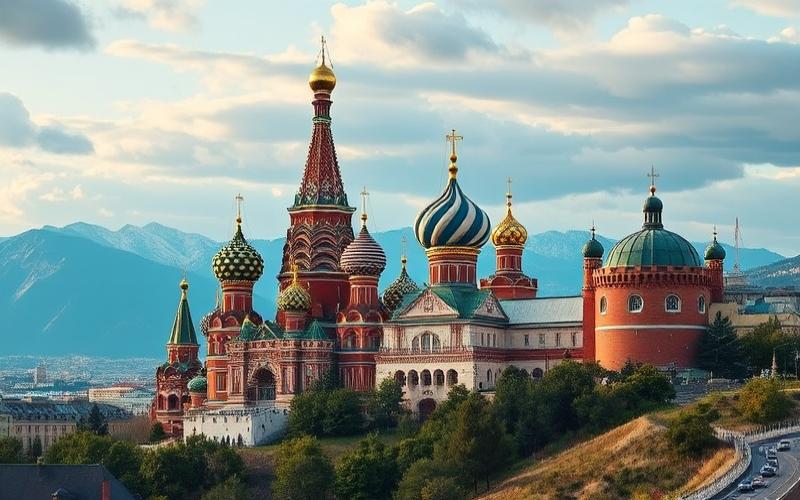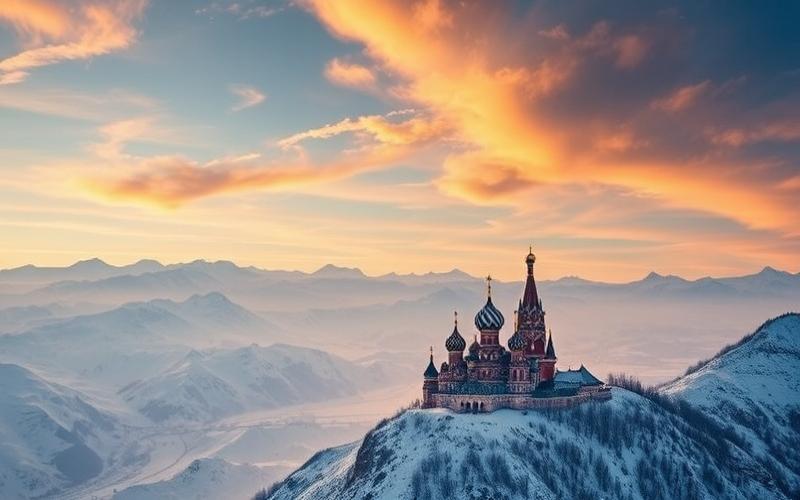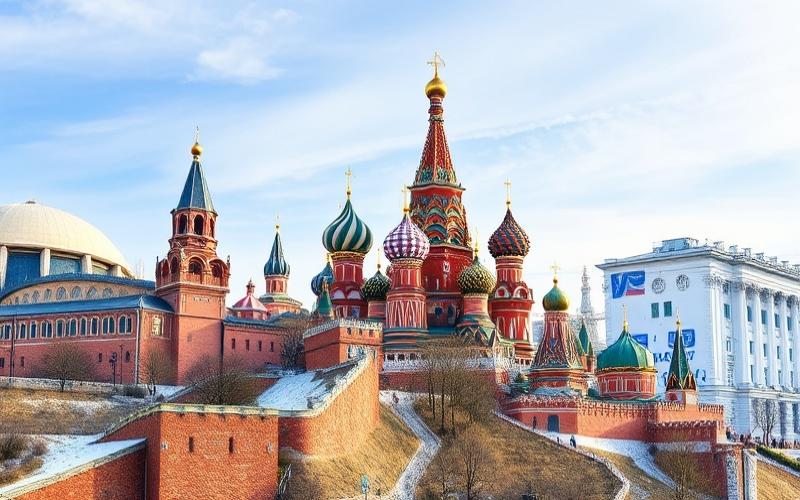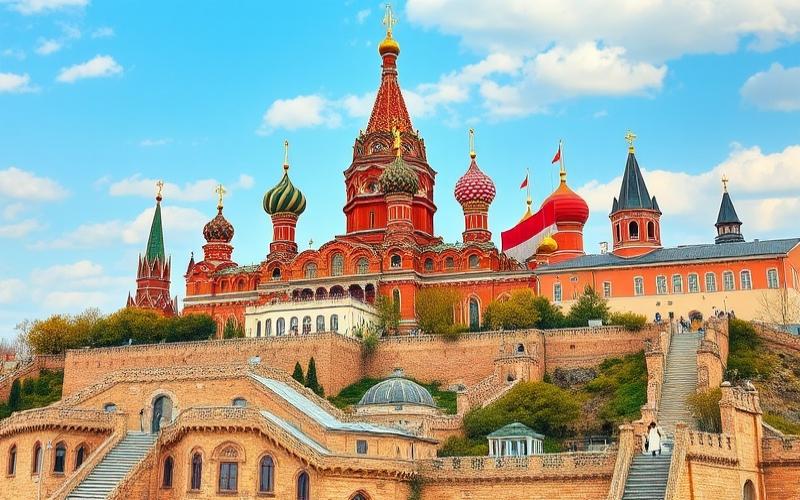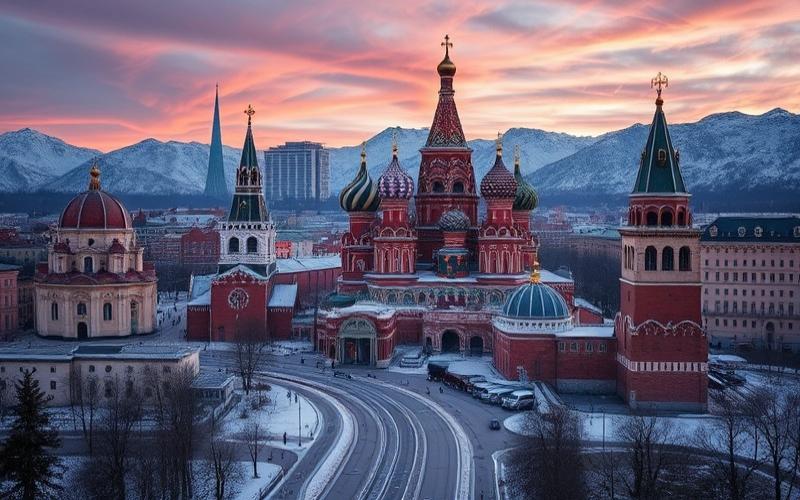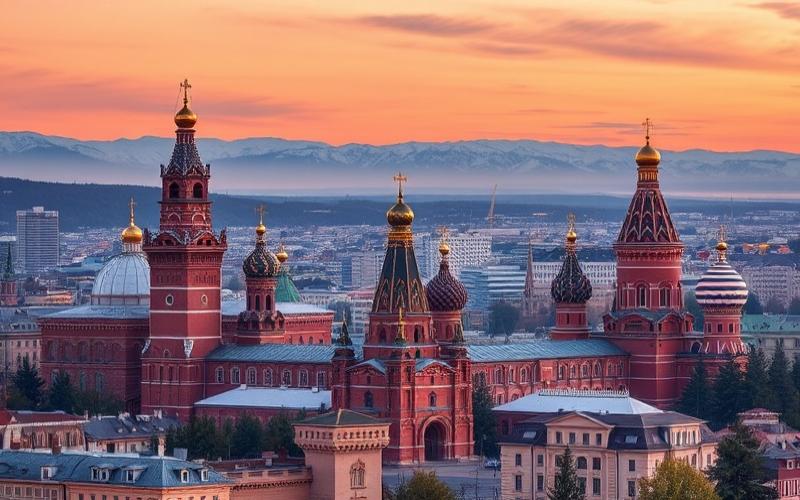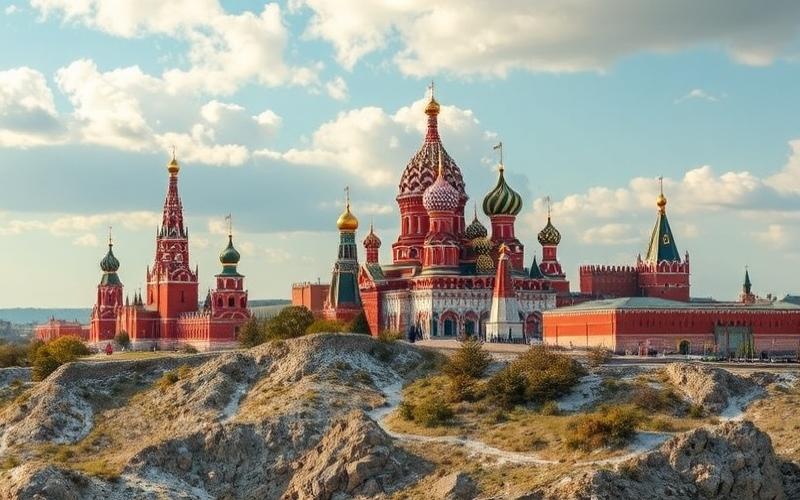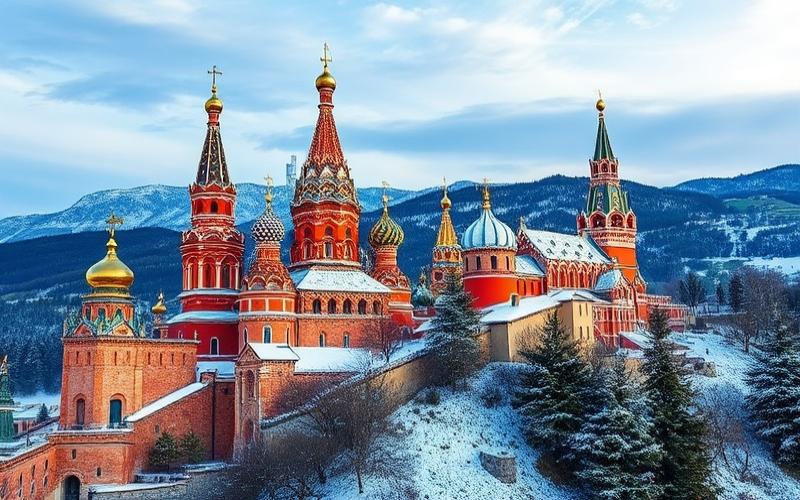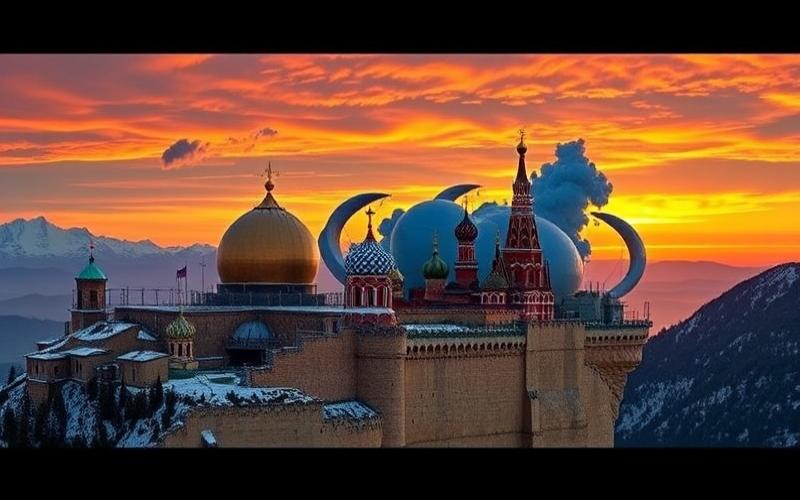
 Published on and written by Cyril Jarnias
Published on and written by Cyril Jarnias
Exploring the world and enriching one’s knowledge by pursuing graduate studies in Russia offers a unique opportunity to immerse oneself in a multifaceted culture while benefiting from quality education.
With its prestigious universities and diverse academic programs in sciences, arts, and technology, Russia attracts a large number of international students each year seeking new perspectives.
Establishing oneself in this vast territory, where history and modernity coexist, not only allows for the discovery of a demanding academic environment but also fosters a deep understanding of an evolving society.
Beyond stereotypes and prejudices, choosing Russia as a study destination represents a genuine personal and professional challenge that paves the way for a promising future.
Graduate Study Options for Expatriates in Russia
Russian universities that host a large number of international students primarily include:
- Moscow State University (MSU)
- Saint Petersburg State University
- Higher School of Economics (HSE)
Other institutions such as Pirogov National Research Medical University, Bauman Technical University, and several specialized institutes are also highly regarded.
Popular Programs
- Fundamental sciences: mathematics, chemistry, physics
- Engineering: civil engineering, computer science, power and electrical engineering
- Medicine and health: general medicine, dentistry, pharmacy
- Economics and management
Most programs are taught in Russian; however, some programs in economics or engineering offer instruction fully or partially in English. Intensive Russian language courses are highly recommended to facilitate academic and social integration. There are preparatory faculties where international students can complete a language year before starting their main program.
Main Admission Requirements
- List of required documents:
- Valid international passport
- Previous diploma with translated transcript
- Certificate of diploma recognition by Russia (if necessary)
- Application review followed by written exams/interviews depending on the chosen program.
- Submission of applications typically via university platforms or email.
Procedure for Obtaining a Student Visa
- Admission confirmed by a Russian university.
- Receipt of an official invitation issued by the Russian ministry.
- Visa application at the consulate with academic and financial proof.
- Mandatory registration upon arrival in Russian territory.
Specific Scholarship Opportunities for Foreigners
- Government quota (Rossotrudnichestvo) covering full or partial tuition fees and guaranteed university housing.
- Internal scholarships awarded based on academic criteria at certain universities.
- Bilateral programs between partner countries.
Specifics of Student Life in Russia
| Aspect | Detail |
|---|---|
| Cost of living | Moderate compared to Western Europe; main expenses: housing |
| Housing | Affordable university residences; private rental options available |
| Activities | Access to museums, cultural festivals, university sports |
| Health insurance | Mandatory; often offered during registration |
International recognition of Russian degrees is ensured in several scientific and medical disciplines due to their compliance with European standards (Bologna Process). Career prospects after studies include:
- Employment opportunities with Russian or international companies locally present
- Recognition allowing access to European/Asian/Middle Eastern markets depending on the field
- For certain sectors like medicine: potential need for additional local equivalencies
Studying in Russia thus represents a solid opportunity to acquire recognized training while fully enjoying the local cultural dynamism.
Good to Know:
Russian universities like Moscow University and the Higher School of Economics offer programs in sciences, engineering, and medicine, often in English; Russian language courses are important and necessary for full immersion. Students can benefit from specific scholarships for foreigners, with internationally recognized degrees, while enjoying an affordable cost of living and rich cultural activities.
Understanding the Russian University System and Admission Procedures
The Russian university system is structured around several types of institutions, offers a full range of degrees, and has notable specificities regarding curricula and admission procedures for international students.
Types of Institutions
| Type of Institution | Description |
|---|---|
| Universities | Offer a wide range of disciplines, focused on fundamental and applied research. |
| Institutes | Specialized in a particular field (engineering, medicine, etc.), oriented towards professional training. |
| Academies | Focused on specific areas (sciences, arts, medicine), often linked to advanced research or executive training. |
University Levels and Degrees
- Bachelor’s (Bakalauréat): 4 years after secondary school.
- Master’s (Magistratura): 2 years after bachelor’s.
- Doctorate (Aspirantura): 3 to 4 years after master’s, leading to the “kandidat nauk” title (equivalent to Western doctorate).
Specifics of the Academic Curriculum
- The academic year generally begins in September.
- Courses combine theoretical teaching, practical work, and research.
- Presence of entrance exams (often specific to each institution or specialty).
- The main language of instruction is Russian, but some programs are offered in English.
Admission Procedures for International Students
Main Steps:
- Submission of application file: valid passport, diploma (high school/bachelor’s/master’s depending on level), transcript.
- Application review: pre-admission certificate or summons to an entrance exam (depending on the institution).
- Payment of application fees (often around €300).
- Receipt of official invitation for studies, essential for visa application (average processing time: 21 to 35 business days).
- Student visa application: passport, application form, invitation letter, photo, negative HIV certificate less than 3 months old.
- Visa registration within 7 days of arrival in Russia, usually handled by the university.
Required Documents:
- Valid passport (at least 18 months after visa expiration date)
- Diploma(s) and transcript(s) translated into Russian
- ID photos
- Medical certificate (including HIV test)
- Official invitation letter
- Completed and signed visa application form
Timelines:
- Pre-application: 1 to 3 days
- Official invitation: 21 to 35 business days
- Student visa: 4 to 20 business days (standard application)
Diploma Equivalencies and Academic Recognition
- Foreign diplomas often require recognition through an equivalence procedure (“nostrification”), especially for access to higher cycles or certain regulated professions.
- Recognition depends on the country of origin and any bilateral agreements.
- Russian diplomas are generally recognized in countries signatory to the Lisbon Convention.
Student Visa
- Mandatory for most nationalities.
- Issued for one year, renewable upon presentation of enrollment certificate.
- Allows multiple entries into Russia during the study period.
Scholarships for International Students
- Russian government scholarships (“quota”): cover tuition fees, sometimes housing and monthly stipend.
- University scholarships: some universities offer discounts or specific aid.
- Bilateral programs: agreements between Russia and certain countries for student exchange and scholarship allocation.
Summary of Key Points in a Table
| Procedure | Average Time | Main Required Documents |
|---|---|---|
| Pre-application | 1-3 days | Passport, diploma, transcript |
| Official invitation | 21-35 business days | Complete file, application fees |
| Student visa application | 4-20 business days | Passport, invitation letter, HIV test, form |
| Visa registration | 7 days after arrival | Passport, visa, proof of enrollment |
Good to Know:
Russian universities offer various degree levels (Bachelor’s, Master’s, Doctorate) and require international students to provide translated documents, specific exams like the EGE, and a valid student visa; government scholarships can cover tuition fees.
Financing Studies and Obtaining Diploma Equivalencies in Russia
Funding Options for International Students in Russia
Study Scholarships Offered by the Russian Government
Russian Government State Scholarship: covers full tuition fees, a monthly stipend, and university dormitory housing (if available).
Eligibility Criteria:
- Passing the Russian Unified State Exam (EGE) or a selection competition organized by embassies or partner organizations.
- Foreign nationality and, in some cases, specific conditions according to bilateral agreements.
Application Process:
- Submission of application to the embassy or Rossotrudnichestvo agency in the home country.
- National pre-selection followed by final selection by the concerned Russian universities.
| Scholarship | Covered Benefits | Application Procedure | Eligibility Criteria |
|---|---|---|---|
| Russian Government | Tuition fees, stipend, housing | Embassy/Rossotrudnichestvo | EGE exam or competition, nationality |
| RACUS “Bright Future” | Study fees, accommodation | Online application on RACUS website | Depending on field and nationality |
University Grants and Scholarships
Some Russian universities offer their own scholarships and fee reductions for international students.
Example: Skoltech offers fully funded scholarships for master’s and doctoral programs, including tuition fees, insurance, and monthly stipend (40,000 to 70,000 RUB/month depending on level).
Application Process: online application directly to the university, often with competition or academic portfolio.
Criteria: academic excellence, language skills, complete application.
International Scholarships
Other scholarships may come from international organizations, foreign governments, or bilateral programs.
Examples: Erasmus+ scholarships for exchanges, World Bank scholarships, etc.
Criteria and processes vary by program.
List of Main Possible Funding Sources
- Russian Government State Scholarship
- RACUS “Bright Future” Scholarship
- University-specific scholarships (e.g., Skoltech)
- International organization scholarships
Part-Time Work Opportunities for International Students
International students in Russia can work part-time, but under certain conditions.
It is mandatory to obtain a specific work permit, unless the employment is within the university during vacations or based on a contract with the university.
Permitted sectors and number of hours may be limited by local legislation.
In case of violation (working without a permit), the student risks administrative penalties.
Summary of Possibilities and Restrictions
| Work Possibility | Main Conditions | Remarks |
|---|---|---|
| Work at university | No permit required, under university contract | Vacations or internal activities |
| External work | Permit mandatory, issued for specific employer and city | Administrative procedure to follow |
Recognition and Equivalency of Foreign Diplomas in Russia
Procedure for Obtaining Equivalency
Students must have their foreign diplomas recognized to enroll in a university or practice a regulated professional activity.
Responsible Institution: National Center for Expertise and Recognition of Foreign Diplomas (Glavexpertcentr), under the authority of the Ministry of Science and Higher Education of the Russian Federation.
Steps to Follow:
- Prepare required documents: original diploma, certified translation into Russian, transcripts, proof of authenticity.
- Submit application online or in person to Glavexpertcentr.
- Payment of processing fees.
- File evaluation (verification of authenticity, comparison of study programs).
- Issuance of equivalency certificate or reasoned refusal decision.
Main Challenges and Obstacles
- Sometimes lengthy processing times for files.
- Need to provide compliant certified translations.
- Some diplomas or fields may not have direct equivalents in the Russian system, which can lead to refusal or additional training requirements.
- Administrative complexity and cost of procedures.
Summary of the Equivalency Process
| Step | Description |
|---|---|
| Document preparation | Diploma, translations, proof documents |
| Application submission | Online or in person (Glavexpertcentr) |
| Payment | Administrative fees |
| Evaluation | Comparative analysis of curricula and verification |
| Decision | Equivalency certificate or additional requirements requested |
Key Takeaway:
International students in Russia have several funding options, but competition is strong and procedures can be lengthy. Diploma equivalency is mandatory for continuing studies or practicing a regulated profession and requires rigorous preparation of the application file.
Part-time work is possible, but it is imperative to comply with current regulations.
Good to Know:
International students in Russia can benefit from government, university, or international scholarships and work part-time under certain conditions; to obtain diploma equivalencies, it is essential to submit the required documents to competent authorities like the Main Center for Educational Expertise, while ensuring understanding of specific criteria and potential challenges related to this recognition.
Impact of International Training on Expatriates’ Careers
International training in Russia significantly influences expatriates’ career trajectories by enabling them to acquire distinctive skills and a strong professional network.
Key Skills Developed:
- Language proficiency: Learning Russian on-site is a major asset. Master’s or MBA-type programs not only allow for improving Russian but also accessing professional-level proficiency in the local language, facilitating integration and employability internationally.
- Cultural adaptability: Expatriates trained in Russia benefit from total immersion in a different culture. Intercultural training is offered to understand local codes, accelerate adaptation, and optimize professional interactions.
- Professional networks: Moscow and Saint Petersburg host headquarters of major local and international companies. Demand for foreign professionals is high there, particularly in management, finance, or engineering. This favors rapid development of a global network.
| Skill | Professional Impact |
|---|---|
| Russian proficiency | Access to local/international positions |
| Cultural adaptability | Facilitated integration |
| Professional networks | Increased career opportunities |
Concrete Success Examples:
- A finance graduate who studied in Moscow quickly accessed internships and then a job with an international bank thanks to her dual language skills and understanding of the local market.
- Foreign teachers are regularly recruited in Russian institutions to teach their native language (English, French…), which also opens paths to careers in translation or publishing.
Recent statistics:
- The official annual quota for work permits intended for foreigners exceeds 1.8 million per region (Russian data).
- According to some sector studies published since 2023:
- Nearly 60% of expatriates who completed higher education in Russia find international employment in their field upon return.
- Over 70% report that Russian proficiency was decisive during recruitment, especially for positions requiring interaction with the Eurasian market.
Comparison with Other University Destinations
| Criterion | Russia | UK / USA |
|---|---|---|
| Local language | Russian (rare elsewhere) | English |
| Intercultural adaptability | High requirement & support | Varies by university |
| Study costs | Generally more affordable | Often high |
| Professional networking | Local market + global companies | Internationally dominant |
In Russia, language immersion, facilitated access to local networks, and attractive costs constitute as many advantages compared to Anglo-Saxon countries where networking remains more oriented towards an international elite but less specific to the Eurasian regional context.
The major specificity of the Russian educational system lies in its emphasis on practical preparation (mandatory internships), its deep integration between international and local students, and a strong valuation of language proficiency as a direct lever for global employability.
Good to Know:
Studies in Russia offer expatriates valuable Russian language skills and cultural adaptability, leading to internationalized careers; according to a recent study, 80% of alumni note faster professional progression thanks to their Russian network. Unlike other destinations, the Russian educational system emphasizes a deep theoretical approach, attracting those seeking unique academic rigor.
Disclaimer: The information provided on this website is for informational purposes only and does not constitute financial, legal, or professional advice. We encourage you to consult qualified experts before making any investment, real estate, or expatriation decisions. Although we strive to maintain up-to-date and accurate information, we do not guarantee the completeness, accuracy, or timeliness of the proposed content. As investment and expatriation involve risks, we disclaim any liability for potential losses or damages arising from the use of this site. Your use of this site confirms your acceptance of these terms and your understanding of the associated risks.

